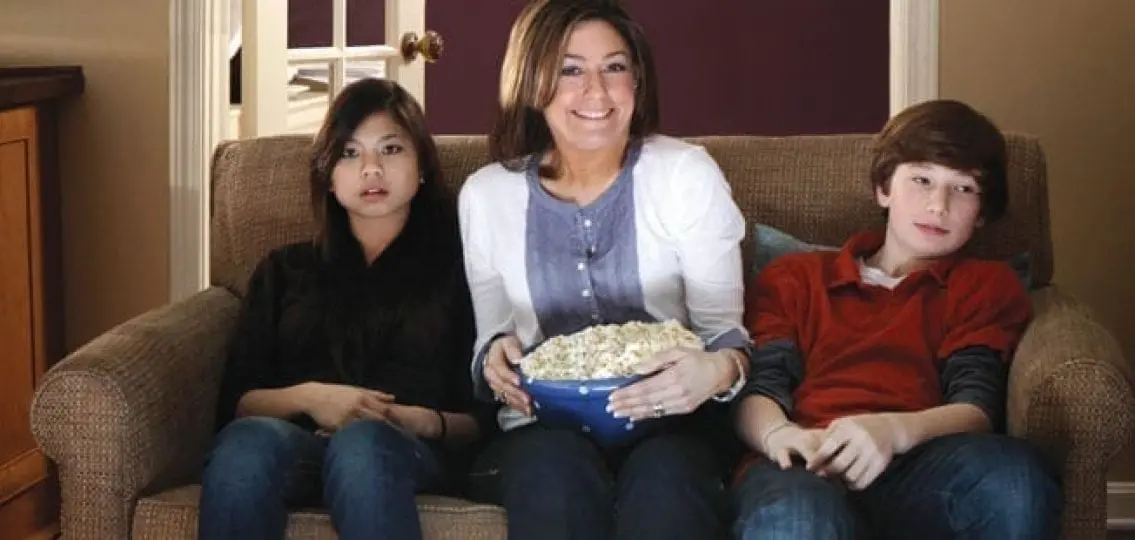Lisa wanted to make sure that her nine-year-old heard it from her first. Hayley was leaving for her first overnight camp experience. And Lisa remembered her own late-night camp talks. Ss they down and had a conversation about sex. As Haley got older, their sex talks progressed beyond the basics and included discussions on healthy relationships, oral sex, sexually transmitted diseases, self-respect and protecting one’s reputation.
Starting Sex Education for Teens
“When she was younger, I talked to her about sex. And as she got older, I talked about sexuality,” Lisa says. The sexuality part was much harder. When they watched a movie, always Lisa made certain to interject her parental expectations and family values. She consistently conveyed the message that Haley could always come to her to talk about anything.
Lisa wanted to educate and prepare her teen so that she could make intelligent and informed choices. Isn’t that every parent’s goal? We invest time and energy into keeping our children safe. We teach them defensive driving, the perils of drugs and alcohol, and how to avoid risky situations. Yet, giving the birds and bees talk and sexuality can make us the most uncomfortable.
How Will Your Teen Discover “The Birds And The Bees”?
Parents can convince themselves that their teens already know everything about sex. The media today is so different than what we watched. Years ago, Planned Parenthood determined that the average American teen was exposed to more than 14,000 sexual images and messages through our mainstream media. One can only imagine that number today. TV shows targeted at teens often depict very adult situations, without the proper context of emotional intimacy and physical safety.
Our teens are bombarded with mixed messages. At every turn, society tells our teens to be sexy, look sexy and act sexy. At the same time, many adults are telling teens to hold off having sex until they are old enough for a safe and emotionally fulfilling relationship. What role can a parent play?
“Parents need to be the primary sex educators of their children. If you’re not talking to your child about sex, then someone else will,” says Lita Townsend, former supervisor of the Responsible Sexual Behavior Program of the Cleveland Metropolitan School District. Although many schools provide sex education for teens, Townsend says the parents must fill in the blanks. “Have the conversation with your teen and be clear about your family values and parental expectations.”
Parental Involvement Expresses Love
Although teens may bristle and complain, deep down they understand that parental involvement expresses a level of commitment, caring, and love. In fact, when parents don’t address the subjects of sex and sexuality, teens may infer that their parents don’t care. One study looked at how teens perceived their parents’ values. Dr. Scott Frank, Director of the Case Western Reserve School of Medicine Master of Public Health program, asked high school students to rate their parents’ disapproval of risky behaviors by asking. How wrong do your parents feel it would be for you to do drugs, drink alcohol, or have sex? The results showed that teens perceive that their parents think teens having sex is the least wrong of adolescent risky behaviors.
“This perceived tolerance for teen sex speaks to the ambivalence many people feel toward the subject,” says Frank.
For teens to understand and internalize their parents’ philosophy about sex and sexuality, parents need to talk openly and honestly with their teens. Parents must be proactive and not reactive.
How to Begin?
Beth Casey, Health Educator at Shaker Middle School in Cleveland, Ohio, believes that “kids should have as much knowledge and education as possible. Even if they don’t need it now, they will at a later time when you are not around. With more knowledge, they will be more empowered to make better decisions.”
Ultimately, more information will lead to healthier choices. So how should a parent begin? Before talking to your teen, think about your attitudes and comfort level with sex and sexuality. How do you define a healthy relationship? And clarify your values and beliefs. For your teen sex talk, don’t limit your conversation to physical intimacy and its mechanics. Emphasize the importance of emotional intimacy as the central component in a healthy relationship.
“Parents should communicate the message that a safe and more fulfilling sexual relationship includes emotional trust and intimacy,” Dr. Frank says. His message might help prevent casual sex, which often brings with it multiple partners, teen pregnancy and STD’s.
Tell Your Teen that This is Uncomfortable for You
If you are embarrassed by the topic or uncomfortable about having the conversation, you can admit this to your teen. Dr. Henry Ng, pediatrician at MetroGeneral Hospital in Cleveland, Ohio, suggests some conversation openers. “I am very uncomfortable talking to you about this subject, but this is important enough for me to overcome my discomfort and talk to you anyway,” or “We are going to fumble through this together. I may say the wrong thing, but I have good intentions.”
Though this approach may garner your teen’s attention and respect, Ng still cautions parents. “Be as sincere as possible because adolescents can read insincerity. While many parents are uncomfortable, be careful that your discomfort will not be read as judgmental.”
Townsend worries that any sign of parental judgment will end all conversations. “Our biggest mistake is that we get judgmental, and our kids don’t want to talk to us because they are afraid to get us mad,” warns Townsend. To keep lines of communication open, maintain an open-minded, tolerant and non-judgmental attitude.
It’s Okay to Say, “I Don’t Know”
Your teen might ask a question that stumps you. “I don’t know” is a perfect response and creates an opportunity for you to look up the answer together. Your honesty invites your teen to be honest with you. And in the event that you are just too uncomfortable to have a healthy conversation, professionals suggests that you identify someone who can step in and have the conversations in your place.
Many parents who might find a way to discuss general sexuality are uncomfortable with homosexuality. Dr. Ng, who founded the Pride Clinic at MetroGeneral, suggests, “Parents should reflect on their own values and experiences that may impact their ability to offer a supportive message about their child’s emerging sexuality.”
Homosexuality
Consider your perspective on homosexuality so that you can be prepared to respond in a tolerant and non-judgmental manner. Teens are more likely to communicate when they are in an atmosphere of open-mindedness and tolerance.
“Gay teens look at the tolerance in their parents’ general behavior to gauge how they will react to their homosexuality,” says Townsend.
Nothing will elicit silence like telling your teen that you would like to talk with them about “the birds and the bees”. Sitting face-to-face at the kitchen table to have a talk is too formal, forced and uncomfortable for most teens. The alternative is to capitalize on teachable moments – or, if necessary, engineer one. Books, TV shows, music and movies that deal with sex will create a natural segue and not a forced situation. Watch a movie or TV show together or listen to the lyrics of a popular song and then discuss the values portrayed there.
Lisa often starts a dialogue when she is driving her kids somewhere. “I love car talks the best, just the two of us in the car with no distractions or interruptions.”
You should close birds and bees talks with a reminder that your teens can always speak with you about anything.
How to Start?
Sometimes we recognize a teachable moment, but we don’t know where to begin. Start the conversation with a teen-centered approach by asking, “What do you know about?”or “What do you think about?” Dr. Frank suggests asking, “How wrong do you think I think it is to?” Alternatively, you can open the door for future conversations with, “If you ever want to talk about … I am open to that,” or “Just checking in with you–do you have any questions?”
Leaving your teen with an open question shows respect for your teen’s privacy and is especially important as they begin to assert their independence and draw boundaries. Parents do not need to know all the details of their teens’ lives. This may be difficult for parents, but it is healthy.
Your teen sex talk all boils down to communication, respect and trust. Keep the lines of communication open by being honest, accepting and available. Respect your teen’s privacy without compromising your parental duties. In the end all you can do is trust–trust that you have taught your teen well and hope that they will make smart and healthy choices.




